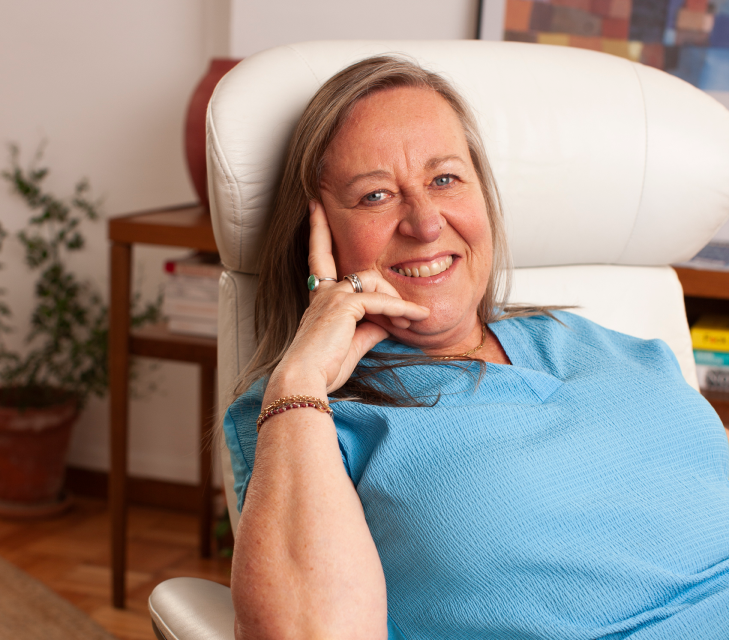One of the axioms of communication in Paul Watzlawick’s Theory of Human Communication is that “one cannot not communicate.” It is from there that I almost feel compelled to write this blog.
The Brief Therapy Center™ operates in Palo Alto, California, as well as in Mexico City and Paraguay. We are offering a diploma program, which includes colleagues from 10 countries in Latin America and Spain. Inevitably, the conversation at the beginning of the classes revolves around the pandemic. It is the context in which we are immersed! Several relatives of our colleagues have been victims of the disease, and we have tried to accompany them from a distance as much as possible. In some of these conversations, I have been struck by how many people are coming to the United States seeking the COVID vaccine because there is a shortage in their countries. Beyond comparing which vaccine is of better brand, the systemic view is evident.
In the United States, there has been talk about equity in vaccine distribution. Wealthier residents received their vaccine first. It had less to do with the person’s age and much more to do with what kind of health insurance one could afford. If you were employed and had better insurance, the vaccine came earlier. If you had to pay for your health insurance out of your own pocket, the more expensive company miraculously received more doses of the precious liquid, even if you were a ‘frontline worker’ but had worse health insurance. Here’s an article in English about the topic. February 2021: “The inequality is striking: in Woodbridge, where the average income of residents is $138,320/year, 19.3% of the population had been vaccinated by February 4, according to data from the Connecticut Department of Health. In Ansonia, where the average income of residents is $45,563/year, only 7.1% had received the first dose,” says this article.
There are other factors that can explain the lower percentage in other states as well. In the Bay Area where I live, undocumented residents are afraid that if they show up for the vaccine, their identification could make them “appear” to ICE – the federal immigration service – at their doors. This has resulted in the most vulnerable workers, who society depends on the most – rural workers who harvest food, people who clean airplanes and hotels, kitchen helpers, those who manage produce in supermarkets, just to name a few – not being vaccinated en masse until today. We all need to be vaccinated if we are going to be safe from the virus.
At the Brief Therapy Center™, we like to think in terms of larger systems, so when we say everyone, we are thinking globally. What is happening in Latin America and Mexico? The vaccines in many of these countries are coming from China and Russia because NAFTA mainly serves U.S. interests, but it is not complete reciprocity. The border with Canada remains closed indefinitely because goods flow without problems, but vaccine doses are scarce: people there are being vaccinated at a much slower rate than in the United States, where there are excess AstraZeneca doses that could be sent to those who need them. It’s the same in Mexico. In terms of equity, a new type of tourism seems to be emerging: traveling to the United States to get vaccinated. I know of several families who have sent their loved ones from Mexico to the southern states of the U.S. to get vaccinated. For them, it’s not too far since they are our neighbors, and the country is not closed like Canada. But now I’m hearing stories of people traveling from Argentina and Paraguay to get the vaccine because in those countries, due to the shortage, residents can barely get a single dose. Yes, it’s better than nothing, but there are still not enough doses for the majority of the population to get at least one dose. And they are now heading into the second winter of the pandemic. If we return to the question of equity: What is happening?
In Paraguay, the government prohibited the importation of vaccines by private entities, saying that they would be so expensive that not everyone would be able to afford them. They will allow imports once the vaccine is affordable enough for everyone to access. But, as the saying goes, “laws are made to be broken,” and what is happening is that the same segment of the population that could have paid for the vaccine in their country is now able to afford a plane ticket to the United States. You need a visa to enter, of course, and also have the willingness to travel many hours by plane, but the same people will be much better protected from COVID but spending much more, simply because they can.
In Turkey, I hear there are actually three levels of citizens: the super-rich – who have somewhat shady connections with the government – were vaccinated almost as soon as the vaccine was available. The rich – who have visas – are also traveling to the United States to get vaccinated, and the rest… will have to wait and will die from the virus at much higher rates because they are poor.
I cannot help but think about the concept of equity. There has been much discussion about the topic, and here is another example of how far we are from achieving it.
Thank you for reading. What do you think?
Write to us!
